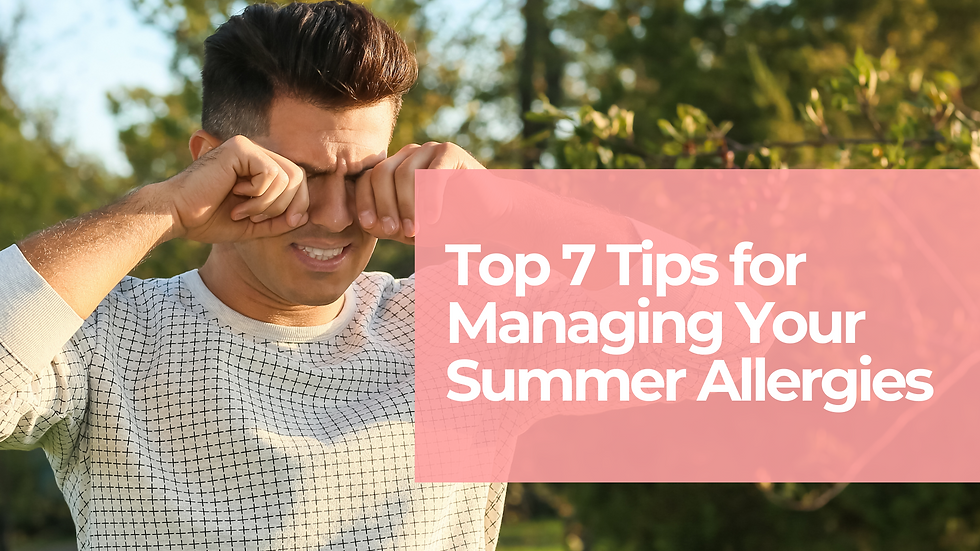Always Carry Your Epinephrine for Food Allergies
- Gina Dapul-Hidalgo
- Oct 7
- 2 min read

Over the summer, I experienced a powerful reminder of just how critical it is to always have epinephrine on hand if you or your child has a food allergy.
While flying 30,000 feet in the air, a passenger began having an allergic reaction after eating food that most likely contained tree nuts—one of his known allergens. His symptoms started with an itchy mouth and lips, then quickly progressed to vomiting, coughing, itching, and a full-body rash.
Fortunately, his parents had their epinephrine autoinjectors with them. We administered two doses during the flight, and he responded well to emergency treatment.
That day reinforced an important truth: epinephrine saves lives.
What Is Anaphylaxis?
Anaphylaxis is a severe, potentially life-threatening allergic reaction that can occur within minutes of exposure to an allergen such as certain foods, insect stings, or medications.
During anaphylaxis, your immune system releases chemicals that can cause your airway to tighten and blood pressure to drop rapidly. Without prompt treatment, the condition can become dangerous very quickly.
The most effective and immediate treatment is epinephrine. It works by relaxing airway muscles, improving breathing, reducing swelling, and increasing blood pressure—all of which help reverse anaphylaxis.
Why You Should Always Carry Two Doses
If you have a known food allergy, carrying two epinephrine autoinjectors or nasal sprays at all times is essential. Here’s why:
Some reactions require a second dose. A single injection may not be enough if symptoms don’t improve or return after the first dose.
Delays can be life-threatening. The sooner epinephrine is given, the better the outcome.
Emergencies can happen anywhere. Whether at school, work, or even 30,000 feet in the air, preparedness saves lives.
Ask your allergist, physician, or pharmacist to train you on how to use your specific device—there are several types available, and each works a bit differently.
How to Be Prepared
If you or your child has food allergies:
✅ Keep two epinephrine autoinjectors or nasal sprays with you at all times.
✅ Store them properly—avoid extreme heat or cold.
✅ Educate family, friends, teachers, and coworkers on when and how to use them.
✅ Wear a medical ID bracelet listing your allergies.
✅ Have an action plan reviewed and updated regularly with your allergist.
When to See an Allergist
If you suspect a food allergy or need to reassess known allergies, it’s important to be evaluated by a board-certified allergist.
At my clinic, we offer:
Skin testing for allergies
Blood testing for confirmation
Oral food challenges (when appropriate)
These evaluations help determine your specific triggers and guide personalized recommendations for safety and peace of mind.
Final Thoughts
That day in the air was a humbling reminder that preparedness can make the difference between a frightening emergency and a safe recovery.
If you, your child, or someone you love lives with food allergies, please make sure your epinephrine devices are always with you—and that you know exactly how to use them.
Your readiness could save a life.
Need an allergy evaluation or updated action plan? Schedule an appointment today to learn more about managing food allergies safely and confidently.




Comments